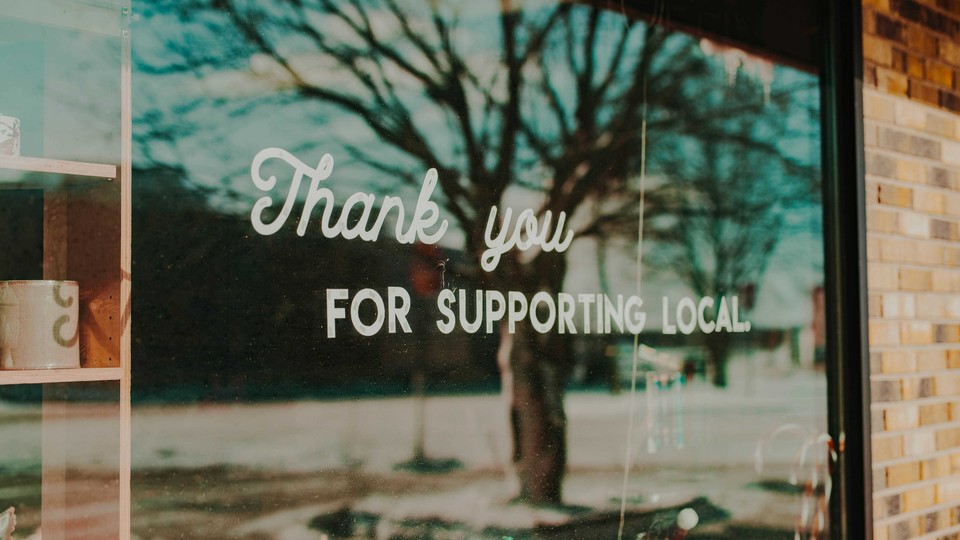
Fast Company
How Rice Business Is Accelerating Entrepreneurship
How Rice Business Is Accelerating Entrepreneurship
This article originally appeared at the Houston Chronicle.
Craig Ceccanti probably owes his mom royalties. It was her insistence on a family outing - to a painting class where Ceccanti and his brother augmented their abilities with beer - that spurred a multistate franchise that grosses $35 million annually.
"I can't repay my mom enough for taking me to that stupid painting class," says Ceccanti, co-founder and CEO of Pinot's Palette, a wine and painting company that boasts 140 franchised locations.
Inspiration fermented for five years, however, before Ceccanti began his business masterpiece. Bringing it to fruition, he says, was his experience at Rice University's Jones Graduate School of Business, where he earned an MBA and learned how to turn ideas into reality.
He exemplifies the new generation of Rice Business grads, beneficiaries of a two-decade effort to build a nationally recognized department with a strong entrepreneurial focus. Forward-looking deans got the program accredited in 1998. They built a 167,000-square-foot building and increased enrollment, winning accolades and attracting faculty from other prominent schools.
Once an afterthought at a school better known for undergraduate liberal arts, Rice Business is now a regular on national best-of lists. Over the past decade its alumni have created 240 businesses, raised $4 billion in funding and hired 7,787 employees. More than four out of five of the companies are still open.
Not surprisingly, energy dominates the field, according to the school's recent survey of 400 alumni, with 33 companies raising $3 billion and creating jobs for 4,704 people. But there are also companies in health care, consulting, consumer goods, financial services and other sectors.
This entrepreneurial ecosystem "pleasantly surprised" Dean Peter Rodriguez when he joined the school 15 months ago as the university's first-ever Hispanic dean. One out of every six Rice Business graduates in the past 10 years went on to found a company.
In the coming years, Rodriguez says, a strong entrepreneurship program will be ever important as younger MBA students are less enchanted with the grueling Wall Street lifestyle or the anonymity of working for a global giant.
"What students want from business schools are the options to lead to a career that they will find gratifying," he said in a recent interview.
Launched in 1977
Rice launched its graduate business program in 1977, but it didn't begin to blossom until 1997. Under then-Dean Gil Whitaker's eight-year tenure, the number of graduating students doubled to roughly 240 each year. The school became accredited and established its Executive MBA, a weekend program for working execs.
Also during this time, the Rice Alliance for Technology and Entrepreneurship was founded. Since debuting the Rice Business Plan Competition in 2001, the annual student startup competition has grown to the richest and largest, hosting graduate students from around the world. Rice Alliance managing director Brad Burke credits it with bolstering the school's entrepreneurial bona fides.
Sean Self, an engineering undergrad in the early 1990s, recalled his friends in the business program saying their money would have been better spent elsewhere. Yet by the time he returned to Rice for his own MBA in 2004, the school had built new facilities and hired new faculty.
Self, who was working for a company that sells surgical products, ultimately used marketing tips taught in the program to help sell that company. A few years later, he opened Nimbic Systems, which makes a device that can protect hospital patients by blowing a gentle stream of air over an incision during surgery to prevent bacteria from entering.
The device has been used in more than 5,000 surgeries. Self expects sales this year of about $400,000.
Around the time Self graduated, Rice Business was in another expansion period. Former Dean Bill Glick, who led the school from 2005 to 2016, boosted the number of graduates to 300 a year.
Much of that growth resulted from the addition of a part-time Professional MBA program in 2006 for workers who want to earn a degree without giving up their job. It now attracts about 180 students a year, and its revenues helped Rice Business add additional faculty. Glick also built a Ph.D. program, which Rodriguez said signaled a stronger seriousness about research.
Among the newer faculty is Yael Hochberg, previously of Northwestern University, whose academic research includes entrepreneurial topics such as venture capital and accelerators.
"There was a long time when nobody at a business school was going to have a professor in entrepreneurship," Rodriguez said. "The view was, entrepreneurs are born not made. This is not an academic discipline. It's a temperament. It's a tolerance for risk. It's a sense of skills that's developed by actually doing this."
That began to change with professors Al Napier and Ed Williams, both recently retired, who were entrepreneurs and tenured faculty members in other fields and most of their teachings came from hands-on experience. Hochberg, in contrast, studies entrepreneurship in more of an academic setting, a further evolution in the faculty skillset.
State programs ranked
Rice Business snagged its first major national recognition in 2010, when it was included on Bloomberg Businessweek's list of best MBA programs.
More recently, Rice bested some notable local competitors on Bloomberg Businessweek's Best Business Schools 2016 ranking. Its full-time MBA ranked No. 8 compared with Texas A&M (No. 18), University of Texas (No. 21) and University of Houston (No. 75). The U.S. News Best Business Schools 2018 list shuffles that a bit, with UT ranked No. 17, Rice No. 29, A&M No. 38 and UH No. 93.
The growth continues. Rice's MBA programs have 676 students enrolled in the graduating classes of 2018 and 2019 despite other options that are now available locally. Texas A&M's Mays Business School, for instance, has about 95 students enrolled in its Professional MBA program in Houston and about 90 in its Executive MBA program here. About 125 more students are enrolled in a full-time program in College Station.
UH likewise offers MBA programs, with 480 students enrolled, and boasts a large, local campus.
"Our students are able to take advantage of a very large and dedicated business faculty more so than satellite programs that aren't based in Houston," said Dalia Pineda, director of graduate admissions and recruitment for the C.T. Bauer College of Business.
When looking specifically at graduate entrepreneurship programs, U.S. News ranked Rice at No. 11, not far behind No. 9 UT. Rice Business' MBA entrepreneurship program has remained in the list's top 15 since 2011. Princeton Review has placed it in the top 10 since 2010 and currently has it No. 3.
"I think the Jones School is attracting more entrepreneurial minded MBA students than it used to 10 years ago," said Burke, of the Rice Alliance for Technology and Entrepreneurship. "So more students come to the Jones School because of its reputation in entrepreneurship."
A core discipline
Not all students enroll with entrepreneurial dreams, but many discover an interest at Rice. Graduates like Jay Zeidman and Kevin Green praise the education they received, the fellow students who inspired them and the "amazing network" of business opportunities it provided after the degrees are handed out.
Entrepreneurship will be a pillar for the next decade at Rice Business. Dean Rodriguez would like to see twice as many students start companies immediately after graduating. He wants to make entrepreneurship a core discipline of the MBA program, similar to accounting or finance. Already, 70 percent of all MBA students take a course in entrepreneurship.
Rodriguez also wants to connect more closely with the local startup community, perhaps developing a national expertise in startup funding, venture capital or angel investment networks. Rice Business is planning a student venture fund.
"If they go out of here and they start a company, now they understand how the capital, the investment side, works," Burke said. "And they're better able to solicit and receive capital for their startup because now they understand the other side of the equation."
Ambitious goals
The school also is accumulating success stories. Pinot's Palette started in Montrose with about $15,000 provided by Ceccanti and co-founders Charles and Beth Willis. They painted the walls themselves and used home speakers to provide music. Marketing was trial and error.
"There were many nights, I remember, Charles and Beth would go and sit in class like a customer just so it didn't seem so empty," Ceccanti said.
Business started picking up after Pinot's Palette was mentioned in the online newsletter Tidbits. The founders secured a $100,000 line of credit to open a second location. A man in Katy began hounding them, weekly, to open a franchise store.
In addition to its current 140 franchise locations, 35 more are in the process of opening. It's experimenting with other crafting classes, including an ugly sweater workshop at its Memorial City location in November.
Ceccanti said his goal is for the company to gross $70 million within the next three years and $250 million in the next decade.
"Never in a million years would I have thought that I'd be in a business like this - or owning a business," said Ceccanti, also an adjunct professor at Rice Business and president of Rice Entrepreneurs Organization. "My dreams were to be an IT director of some sort. So it's a bit of a fairy tale for me."
Never Miss A Story


